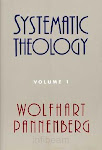2 weeks ago
Monday, 23 June 2008
After Virtue - part 4 (of 6)
1. Where Are We Now, and Why?
2. “Enlightened” Europe
3. Turning point: Nietzsche or Aristotle?
4. Pagan vs. Christian Virtues
5. After Virtue
6. MacIntyre’s Answer
4. Pagan vs. Christian Virtues
The relationship of pagan and Christian virtues was more than a theoretical question. Society was affected, too. What were the churchmen to teach believers?
The backdrop of the Christian standpoint is: unity of things according to reason. This found its supreme expression in Dante and Aquinas.
Christianity, as said earlier, required not only the concept of character defects (vice), but also breaches of divine law (sin). Christianity understood that virtues and vices were, to some extent, both internal and external, but that the true arena of morality was is the internal will. How, then, is law related to virtues? The answer of the movement of synthesis was to keep the tension. (Not an untypical Christian answer. For instance, the unity of body and soul, human and divine, freedom and truth, and so on.)
Christianity brought to the discussion new virtues as well, which were unheard of for Aristotle.
Charity (agape love), above all. The New Testament’s “love thy enemy” found no resonance in Aristotle’s “a good man cannot be a bad man’s friend”. Also, forgiveness was presented as an alternative to revenge. Later, Aquinas was to redefine the cardinal virtues to contain Patience and Humility. (Humility, for Aristotle, was a vice and not a virtue!) Even more, the dimension of evil was something new. (Augustine and Paul: “We delight in evil.”)
In the end, teleology remains, but with two differences: eudaimonia (happiness or human flourishing) was (1) for everyone (not just the “haves”) and (2) could be pursued everywhere (not just in the polis).
The author of After Virtue seeks to find a core in the different outlooks of virtue. Accounts of social and moral life differ but, the author – who now believes to have found the core – draws attention to the fact that all have some account. In Chapters 14 and 15 he explains the “three stages” of all accounts of the nature of virtue.
All accounts (1) are related to practices, (2) presuppose the unity of life, and (3) hold fast to some form of moral tradition.
Of the first, a succinct definition suffices. The first universal definition of virtue could be: Virtue is a quality that enables goods which are internal to practices.
The idea of the unity of life has two obstacles: a social and philosophical obstacle. As regards the first, modernity partitions life into segments (work/leisure, private/public etc.). As regards modern philosophy, we are taught to think atomistically – true complexity of life is simplified (or reductioned).
Virtuous anthropology (my concept), however, sees life as a unity, and unity as a narrative (MacIntyre's concept). It links birth to life, life to death. The beginning, middle, and end, are treated as a whole. If life is narrative, MacIntyre continues, the true genre of life is tragedy (or drama). Human beings are actors (constraints on a stage), but also co-authors (we presuppose freedom).
Linked to the unity of life is another important concept: personal identity. It is not a psychological continuum of self (see Locke, Hume). It is twofold. First, I am a subject of a history – with a telos. Personal identity presupposes unity of character. Secondly, it is correlative – I am a subject of their story too, the narratives are interlocked.
Consequently, the third stage, tradition, basically states that the self cannot be separated from community socially or historically. This is at odds with modernity, which says: “(American) I didn’t own slaves”, or “(Englishman) I didn’t mistreat the Irish”, and so on. We are part of a tradition, like it or not. (A Christian reader speculates here whether MacIntyre is smuggling in the concept of Original Sin.)
Subscribe to:
Post Comments (Atom)







No comments:
Post a Comment